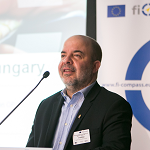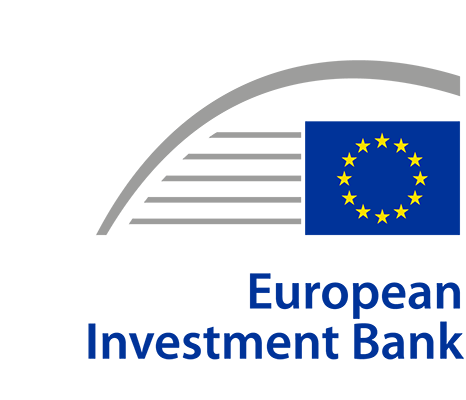Financial Instruments delivering ESI Funds, Budapest, 10 March 2016
Overview

Picture: Tamás Karsai, Ministry of National Economy, Hungary
On 10 March 2016, financial instruments delivering ESI Funds were discussed at a seminar in Budapest, Hungary. This event was part of the national seminar series that has been taking place in nearly all Member States of the European Union since autumn 2015.
The seminar in Budapest was attended by representatives from managing, certifying and audit authorities, as well as other regional and national authorities, financial intermediaries and consultants. There were over 80 delegates from these various institutions in attendance.

Picture: József Török, Széchenyi Venture Capital Management, Hungary; Grzegorz Czerniawski, Bank Gospodarstwa Krajowego, Poland; Dr György Nyikos, MFB Hungarian Development Bank, Hungary; Gyula Szöke, Ministry of National Economy, Hungary; Tamás Karsai, Ministry of National Economy, Hungary
The seminar was opened by Tamás Karsai, from the Ministry of National Economy in Hungary, who gave an introduction on the envisaged use of financial instruments in Hungary during the 2014-2020 programming period. Gyula Szőke, also from the Ministry of National Economy, gave a presentation on the experience with loans, guarantees and venture capital from the 2007-2013 programming period when the first financial instruments were set up in Hungary. He concluded with the plan for financial instruments in Hungary over the course of the 2014-2020 programming period.
Experience with combined microcredit was presented by Dr Györgyi Nyikos from MFB Hungarian Development Bank. The wider possibilities of financial instruments and the positive experiences of the combined products were highlighted. Grzegorz Czerniawski, from Bank Gospodarstwa Krajowego in Poland, gave a presentation on how financial instruments support the development of the social economy. The goal of this project is to develop and extend business activities for socially excluded entities, in addition to testing the effectiveness of using financial instruments instead of grants. József Török, from Széchenyi Venture Capital Management in Hungary, presented the SZTA programme. Since 2011, this unique financial programme has been targeting primarily SMEs in the traditional industries that have an innovation-oriented vision.

Picture: Event participants
The case study presentations were followed by the European Commission’s Directorate-General for Regional and Urban Policy presentation on the opportunities offered by the 2014-20 framework, as well as the latest official guidance concerning ESIF financial instruments and the new off-the-shelf instruments. Pieter Coppens, from the European Investment Bank, introduced the fi-compass advisory support and explained the features of the fi-compass website.
The seminar in Budapest concluded with two parallel workshops, which included hands-on exercises following the life cycle of financial instruments while placing particular emphasis on the design phase. During these workshops, the participants were given the opportunity to discuss their own practical experiences related to the implementation of financial instruments. The success of the seminar clearly demonstrated that there is a strong interest in financial instruments in Hungary.
| Title | Speakers | ||
|---|---|---|---|
| |
Welcome |
Tamás Karsai, Ministry of National Economy, Hungary |
|
| |
Financial instruments in Hungary - State of play |
Gyula Szőke, Ministry of National Economy, Hungary |
|
| |
Combined micro-credit and grant scheme |
Dr Györgyi Nyikos, MFB Hungarian Development Bank, Hungary |
|
| |
Social economy financing on the example of BGK’s project |
Grzegorz Czerniawski, Bank Gospodarstwa Krajowego, Poland |
|
| |
Supporting SMEs with venture capital on the example of SZTA programme |
József Török, Széchenyi Venture Capital Management, Hungary |
|
| |
Opportunities offered by the 2014-20 framework |
Oana-Andrea Dordain and Thomas de Béthune European Commission (DG REGIO) |
|
| |
fi-compass advisory support |
Pieter Coppens, European Investment Bank |
|
| |
EC Guidance |
Oana-Andrea Dordain and Thomas de Béthune, European Commission (DG REGIO) |


